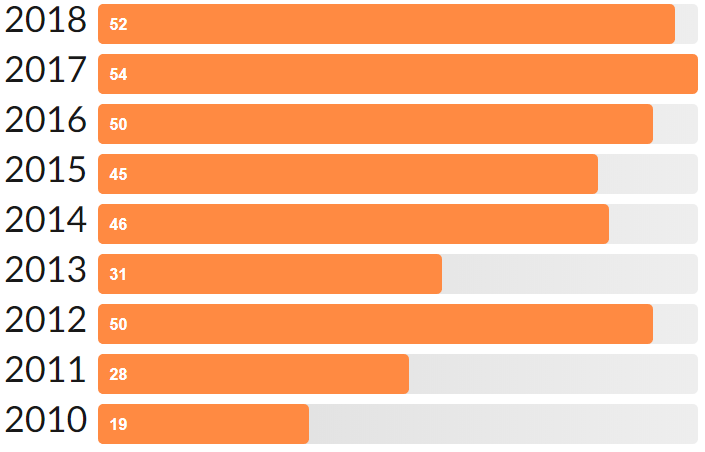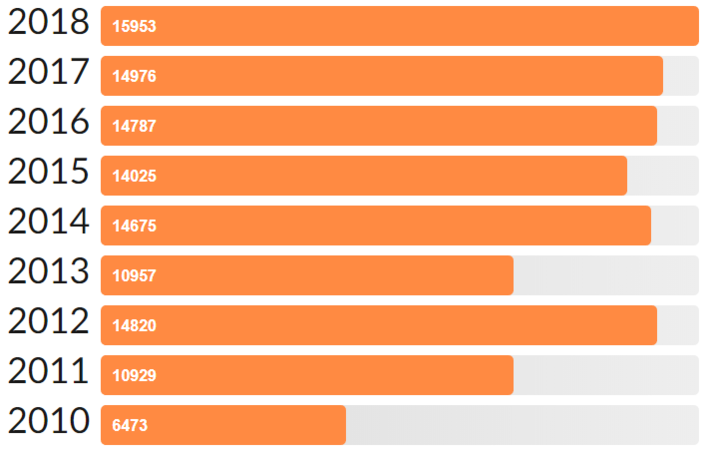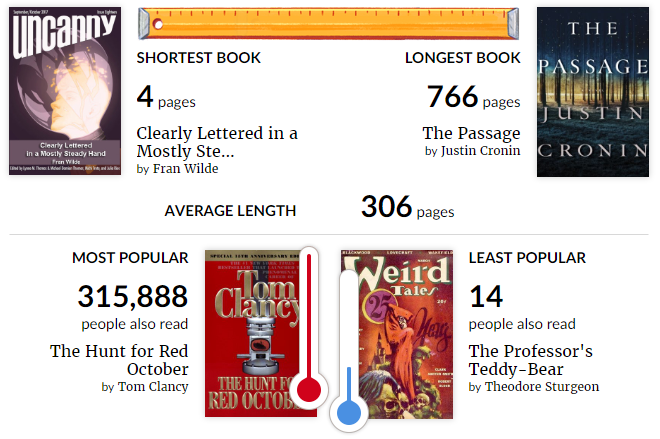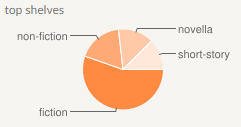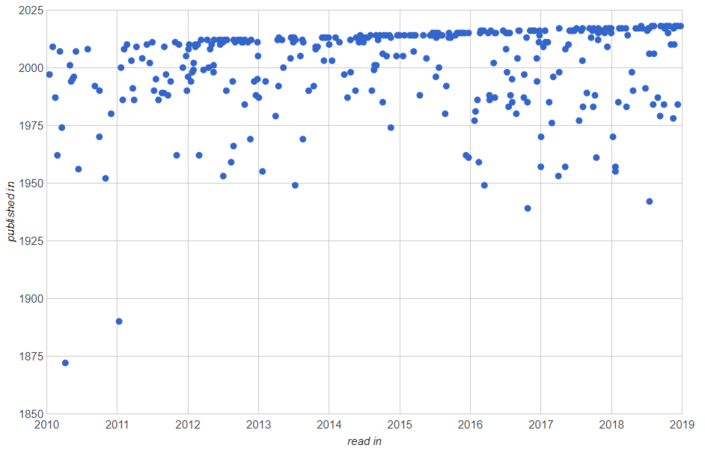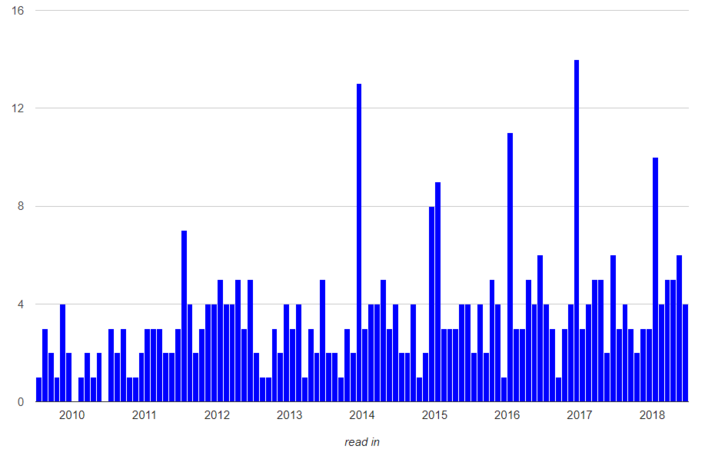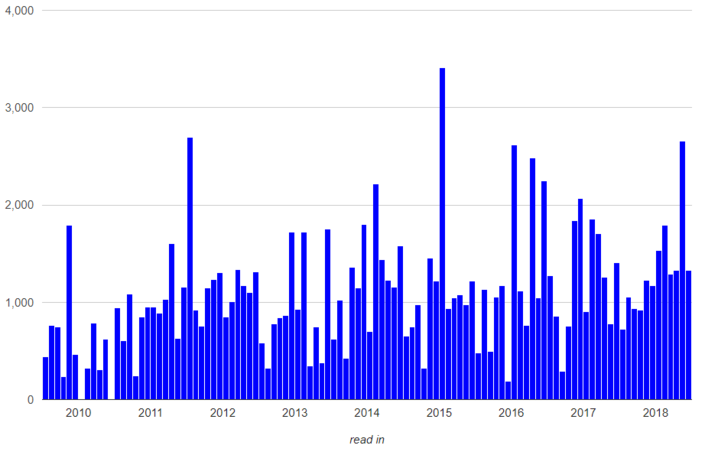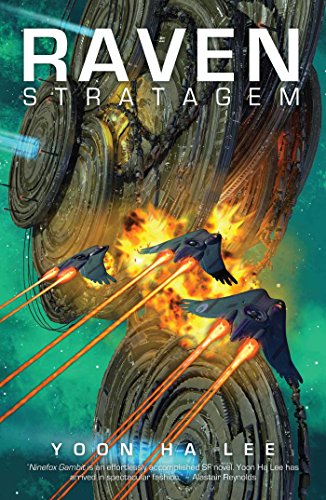Vintage Science Fiction Month: Podkayne of Mars
Vintage SF Month is hosted by the Little Red Reviewer. The objective: Read and discuss “older than I am” Science Fiction in the month of January.
I’ve always enjoyed Science Fiction, but a little over a decade ago, I decided to make my casual enjoyment of the genre a little more formal by broadening my horizons and reading more important examples of the genre. One of the first things I did was read a bunch of Heinlein Juveniles (akin to what we’d probably call Young Adult these days). Robert A. Heinlein was never my favorite of the Golden Age authors, but I’ve gathered that he was among the most important, and after reading many of his novels, I’ve gained a solid appreciation for the novels themselves and their influence on the genre (and, for that matter, real-world space exploration). Since then, I’ve slowly been working my way through his bibliography, and this year, I decided to take a look at the unofficial 14th Juvenile novel, Podkayne of Mars. Heinlein himself doesn’t consider it a Juvenile and he’d long since gotten tired of being regarded as a “writer of children’s books and nothing else”, but then, it is written mostly from the perspective of a 15 year old girl (with her eleven year old, snot-nosed little brother playing a big role), so it kinda fits within the Juvenile mold.
Podkayne “Poddy” Fries is a 15 year old girl living on Mars who dreams of becoming the first female starship pilot and leading deep-space exploration efforts. The novel is presented as a first person narrative consisting of her diary. As the story begins, she is about to embark on a trip from Mars to Earth, but the whole thing is scuttled when a hospital mixup inadvertently saddles her parents with three newborn babies to care for (in this future, kids are conceived early and then frozen in order to allow parents to “uncork” the children as time permits, though obviously not in this case). However, the trip is resurrected when Poddy’s uncle Tom manages to arrange passage for Poddy and her unbearable (but genius-level smart) little brother Clark on a cruise ship to Earth, with a stop at Venus first. After some minor adventures and meandering, we soon learn that Tom’s magnanimous offer to chaperon this trip is really just a cover for some sort of secret political wrangling, and higher-stakes hijinks ensue.
In short, this is probably my least favorite Heinlein novel, though it fails in interesting ways. There’s a promising start, and some things play to Heinlein’s strengths, but there’s a fair amount of unfocused meandering and the whole thing falls apart completely towards the ending, which feels rushed and weirdly dismissive of our narrator/protagonist. Spoilers from here on out!
Speaking of which, our protagonist here is a teenage girl, a fraught proposition when it comes to Heinlein these days. He doesn’t exactly have the greatest reputation for writing female characters, and if you were so inclined to look for it, you would find a whole host of things to be offended by in this story. You probably won’t have to look very hard. For instance, Poddy seems to be intelligent, but opines on multiple occasions that a woman should hide that intelligence around men, or that a woman should never beat a man in any sort of game of strength (thus she pretends to lose an arm-wrestling match to her little brother), and then there’s the thrill of discovering how to properly apply make-up, and so on. I suppose a more generous reading could be that depictions of sexism or the ways females cope with same is not an endorsement, but this novel (especially the ending, which we’ll get to in a bit) strains that reading of the story. It’s also worth noting that, according to the Encyclopedia of Science Fiction, this is the second earliest example of a SF novel that features a female protagonist (narrowly beat out by Naomi Mitchison’s lesser known Memoirs of a Spacewoman). To be sure, there were earlier short fiction examples, some even written by Heinlein himself as early as 1949 (featuring a character who he eventually used as inspiration for Poddy), but this is notable in itself.
Other topics are more deftly portrayed, with Heinlein working in a more exploratory mode than he has in many of his works, which are often more prescriptive (i.e. there aren’t bald lectures a la Starship Troopers). Indeed, when describing the laissez-faire corporatism of Venusian society, uncle Tom states that he “…can’t make up his mind whether it is the grimmest tyranny the human race has ever known… or the most perfect democracy in history.” Heinlein goes to great lengths to portray the “corporate fascism” of Venus without resorting too much to lecturing, and he allows the reader to infer a lot of the details so they can make up their own mind.
Alas, the ending really puts the breaks on things for me. Events escalate quickly and Poddy and her brother Clark end up kidnapped by nefarious political forces hoping to blackmail their uncle Tom for concessions. At this point, Poddy goes from being an intelligent, active character to being almost entirely passive, as Clark immediately senses the gravity of the situation (no matter what Tom does, there’s no incentive for the kidnappers to keep the kids alive) and devises an escape plan. Furthermore, Poddy is grievously injured during the escape because she went back to the compound to rescue a semi-intelligent Venusian baby animal and Clark had forgotten to disable a nuclear bomb (another baffling subplot, to be honest), which inadvertently went off. The original ending that Heinlein wanted was to have Poddy die in the explosion, but that was apparently a bridge too far for the publisher, who insisted he rewrite the ending. You can kinda tell that Heinlein’s heart wasn’t in it, as the endings aren’t that different and it’s clear that he did the bear minimum to satisfy the publisher’s expectations. Both endings are available in some editions, but to my mind, neither are particularly good, for reasons already expounded upon.
Another strange thing about the ending is uncle Tom’s admonishing of Poddy and Clark’s parents for not caring enough about raising their children. Given uncle Tom’s use of the children as little more than human shields, disposable meat-pawns for his chess game of interplanetary politics, this is perhaps another example of depiction not being endorsement. Still, the ending strains all storytelling credibility in ways that I’m not used to from Heinlein. It doesn’t help that Poddy, thanks to an experience on the trip to Venus where she had to help save babies in the nursery (an event that probably also influenced her decision to go back and save the animal), is implied to be reconsidering her dream of becoming a starship captain, which even from a storytelling perspective, is a bit odd given the opening of the novel.
One of the things I’ve always enjoyed about Heinlein is his fondness for experimenting with ideas, asking “what if?”, and there’s certainly some of that going on here. I suspect even his more prescriptive works (the aforementioned Starship Troopers comes to mind) are more stronger-stated thought experiments than strict representations of Heinlein’s actual beliefs. There are certainly themes that underlie his work, but from what I’ve read (which is certainly not comprehensive), they might not be quite as well-defined as usually portrayed. Indeed, one of those underlying themes is certainly his propensity for thought experiments, and thus you get a hard-right book like Starship Troopers followed a year later by the sixties counter-culture template of Stranger in a Strange Land (and just a few years after that, the proto-libertarian The Moon is a Harsh Mistress). As such, Podkayne of Mars occupies an interesting, if not entirely successful, place in Heinlein’s oeuvre (coming in between the three books just mentioned) and perhaps SF in general (as an early SF novel with a female protagonist, if not a particularly great example). Owing to Heinlein’s importance to the genre, there are actually tons of biographical materials about his beliefs and how they influenced his work, and it’s something I should probably look into more sometime. Still, judging solely based on what I’ve read (and my tendency towards optimism), I gather I have a mildly different view of Heinlein than a lot of other people. Perhaps we should be less concerned with what Heinlein thought than how we interpret his works ourselves. It’s entirely possible that I’m just projecting my love of thought experiments onto Heinlein (though given his endless imagination for wide-ranging stories, I suspect there’s some basis for my thoughts here). That being said, of his juveniles, I vastly prefer Tunnel in the Sky and Have Spacesuit, Will Travel. While not entirely enthused with this one, I’m not deterred from continuing to explore Heinlein’s works much at all.
